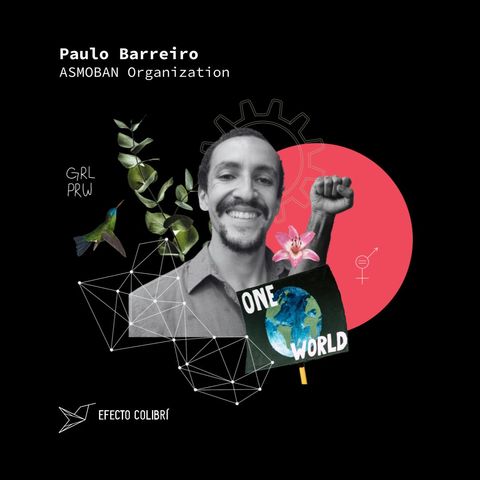Adaptive governance: Community development through ecosystem learning

Download and listen anywhere
Download your favorite episodes and enjoy them, wherever you are! Sign up or log in now to access offline listening.
Adaptive governance: Community development through ecosystem learning
This is an automatically generated transcript. Please note that complete accuracy is not guaranteed.
Description
Today we are going to Esperança-Condurú ecological corridor of Southern Bahia in Brazil to understand that we have a lot to learn from nature and from communities that have been...
show more“An ecosystem is s a dynamic set of relationships that are collaborating towards self sustenance” - Paulo
In this episode you will hear about:
- Passion for Nature and Community (05:00): The importance of having passion for nature, inspired by its connection to life and understanding oneself better through nature. Paulo tells us how his early childhood experiences near Lake Titicaca in Bolivia shaped a fascination with people living in sync with nature's rhythms, and more, shifted his career path to work closely with forests and communities, now residing in Southern Bahia, surrounded by nature.
- Impact on Health and Well-being (14:00): The interviewed experienced a health decline due to a fast-paced, goal-oriented lifestyle working long hours. Rediscovered healing through nature, relying on natural remedies and lifestyle changes to recover from gastritis. Emphasizes the importance of slowing down and prioritizing health in the context of nature's influence.
- Understanding Ecosystems (23:30): Ana and Paulo define ecosystems as dynamic relationships fostering self-sustenance, resilience, and the progression of life from basic to complex forms. The academic shared his studies of watershed ecosystems and recognized the challenge in translating ecological knowledge for effective human conservation.
- Human Ecosystems and Education (32:00): The conversation engages in policy analysis and evaluation for ecosystem governance in the tropics, focusing on collective action within communities. They advocate for a shift in educational paradigms, valuing traditional wisdom, contemplation, and a holistic view of life rather than practical utility.
- Observation, Policy Building, and Collective Intelligence (44:30): A description of observed community interactions, serves as a mirror, and engages in policy-building processes within local associations. To finish, he highlights the importance of collective intelligence in community development, emphasizing flexibility, adaptation, and a shared sense of purpose.
This conversation beautifully unravels a journey from personal passion for nature to applying this passion in community-driven environmental governance, intertwining health, education, policy analysis, and the dynamics of collective intelligence within ecosystems.Paulo Sanjines Barreiro holds a masters in science focused on ecosystem markets and governance from Yale Forestry School. He has ample experience in field research on integrated landscape management for both policy and socio-economical analysis. He is well acquainted with and worked in both public and private sectors; Paulo has managed and monitored large protected areas in Bolivia, coordinated and monitored ecosystem conservation projects in Southern Bahia, where he resides since 2012; and continues to act as both grassroot activist and researcher for ASMOBAN (explained below) on climate education and food sovereignty community based projects in Southern Bahia.
The Neighbor's Association of Bairro Novo (ASMOBAN for its acronym in Portuguese) was founded in 2012. The Association has a unique network governance approach with its more than 10 nodes, or initiatives, among them the “Community Fair Saberes e Sabores”, created in 2019, as a solidarity economy strategy to generate family income; and the “Educational and Community vegetable garden”, called Hortinha by the children, created in 2021, to contribute to the nutrition and education of children and adolescents using alternative pedagogical approaches such agroecology. The Fair and the Hortinha directly benefit people in situations of food and economic fragility, residents of Bairro Novo. Thus, offering spaces of solidarity economy and community rooting with an important political, economic and socio-environmental role.
This is a produccion and distribuition for Efecto Colibrí - Your podcast site for an inclusive, just and regerative reality.
Information
| Author | Efecto Colibrí |
| Organization | Efecto Colibrí |
| Website | - |
| Tags |
Copyright 2024 - Spreaker Inc. an iHeartMedia Company
